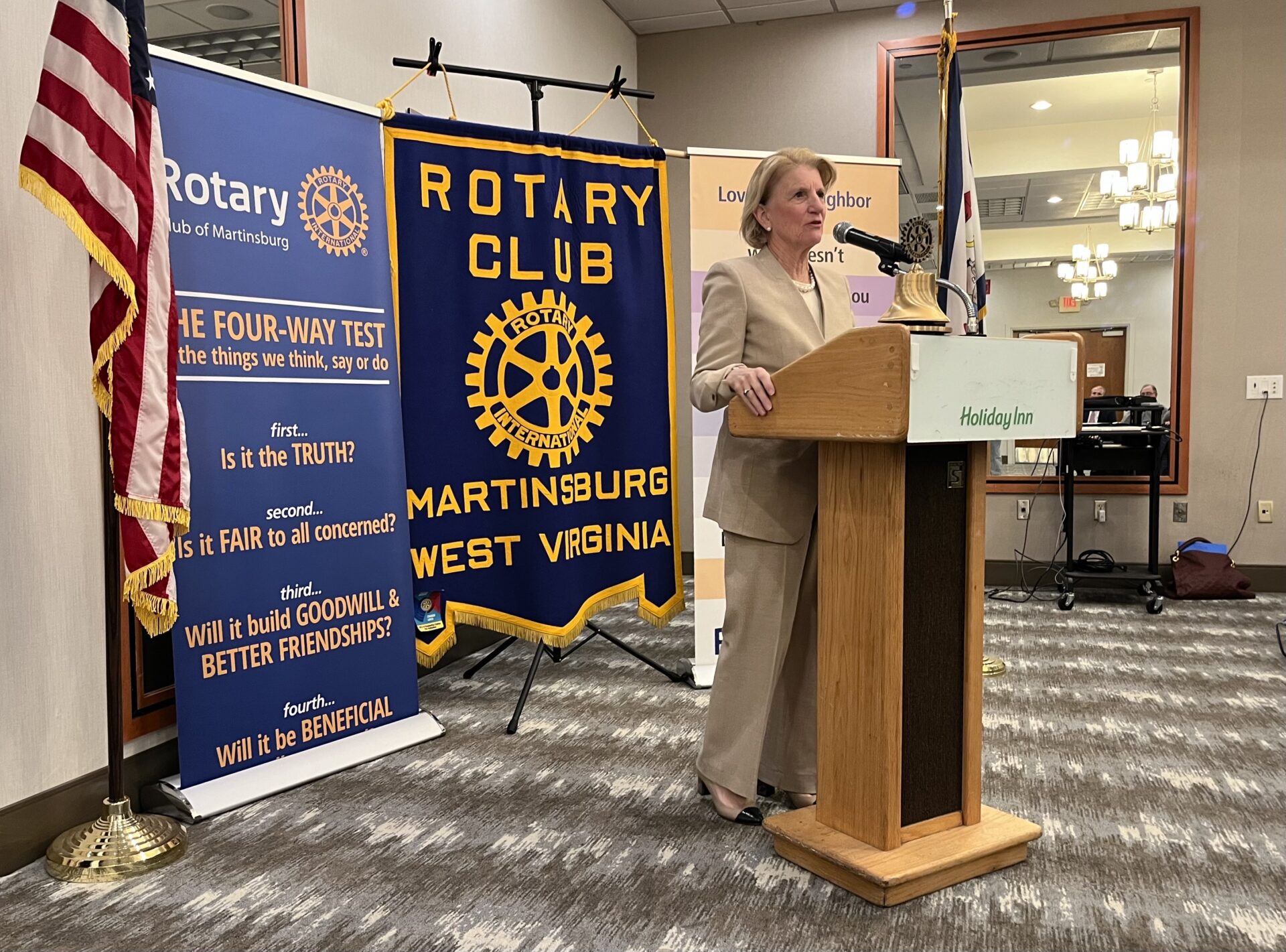Sen. Shelley Moore Capito, R-W.Va., renewed calls for border security Thursday during a speech in Martinsburg.
At a meeting of the Rotary Club of Martinsburg, Capito addressed her vote against a bipartisan bill in the U.S. Senate that would have added border security jobs and raised standards for asylum claims in the U.S.
These plans – coupled with foreign aid for Israel, Ukraine and Taiwan – were developed in a bill from a group of bipartisan lawmakers over several months.
But a bloc of Republicans voted against the bill, killing it on the Senate floor.
Capito said that immigration reform remains a central concern for her, but that she could not support the bill’s final draft.
According to Capito, lawmakers developed the bill in good faith. But she said “it was not a package that I thought would solve the problem, quite simply.”
Still, Capito said she has pushed fellow lawmakers to consider border security in later discussions.
“The number one problem that I hear about in this state, hands down, is the illegal immigration coming from the southern border,” she said.
When a new bill appeared on the Senate floor that allocated foreign aid without provisions for the U.S.-Mexico border, Capito said she was not fully satisfied.
“I kept saying we need amendments, we need to have border security, we need to have border security, and the end that got stripped out,” she said. “And the only option was to vote for foreign assistance.”
Ultimately, Capito voted in favor of the bill, which passed the Senate and requires a vote from the U.S. House of Delegates to become law.
Capito said she felt border security resources would have strengthened the bill. But she still saw value in supporting U.S. allies abroad and voted alongside 21 other Republicans.
Bolstering security in foreign countries would reduce the need for U.S. military intervention abroad in the future, she said.
During her speech, Capito also criticized President Joe Biden for what she sees as a lack of action on immigration and border security.
While the Biden administration played a part in negotiations for the bipartisan bill that failed in the Senate, Capito said the president still has not used enough of his authority to address immigration issues.
“There are things the president can do. You can turn people back to Mexico. You can do expedited removal. You can do asylum claims quicker,” she said. “This can all be done today, without any legislation.”
